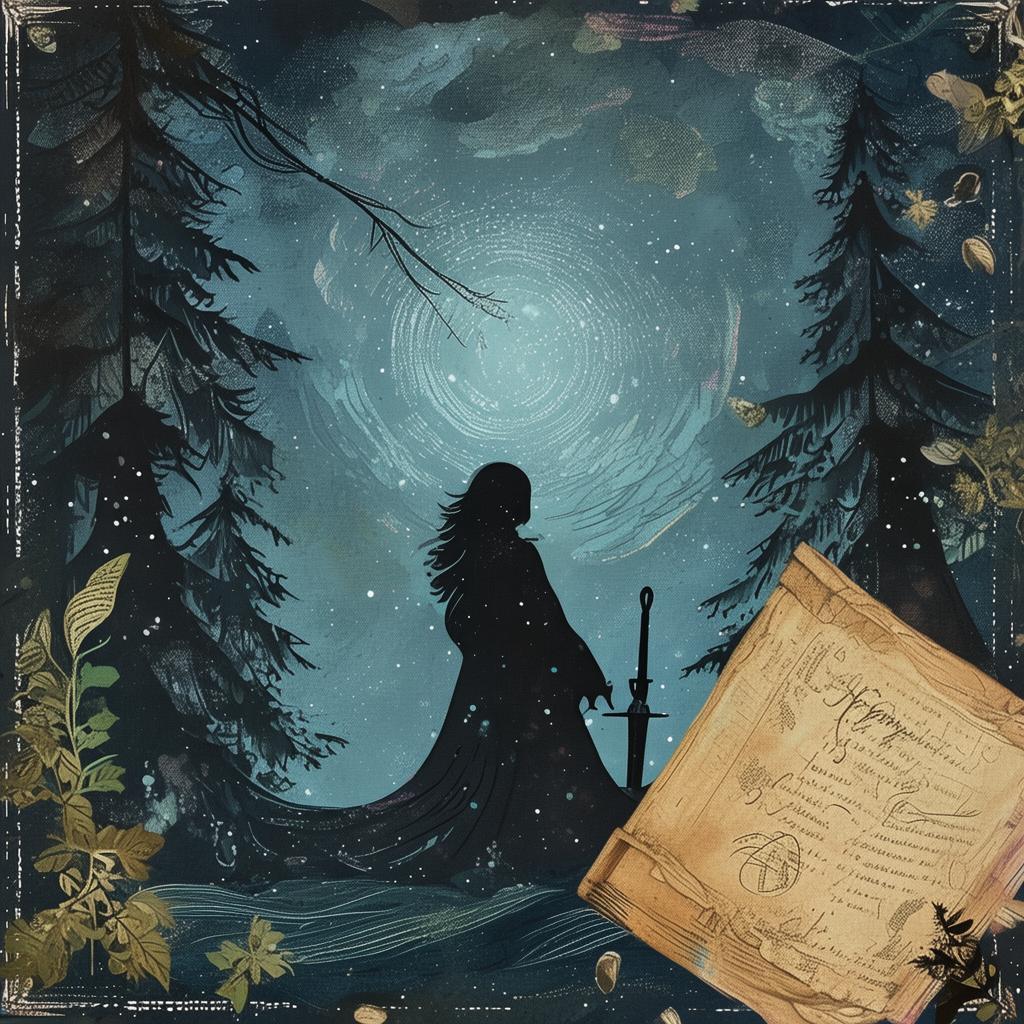The Samurai's Festive Fiasco
In the quaint village of Kiyomizu, nestled amidst the rolling hills of Kyoto, the annual Feudal Festival was in full swing. The air was thick with the scent of grilled meat and sake, and the streets were thronged with villagers in elaborate costumes, their laughter mingling with the sounds of traditional music.
Among the crowd was a figure that stood out like a sore thumb—a German samurai, his leather armor glistening in the sunlight. His name was Heinrich, and he had traveled from the distant lands of Europe to Japan, seeking enlightenment and the samurai way. Little did he know that his journey would lead him to the heart of a festival that would challenge everything he thought he knew about honor and tradition.
The festival was a grand affair, with each day dedicated to a different aspect of Japanese culture. On the second day, the focus was on the samurai, and the villagers had prepared a special feast to honor their warrior spirit. The menu was a blend of traditional Japanese dishes and unexpected European treats, a nod to the cultural exchange that the festival aimed to foster.
Heinrich, with his keen sense of humor, was excited to participate. He had heard tales of the Japanese love for the unexpected and was eager to see the festival firsthand. However, his enthusiasm was quickly dampened when he discovered that the festival's organizers had mistaken him for a Japanese samurai, and he was expected to adhere to strict traditional customs.
The first challenge came when he was asked to perform a traditional tea ceremony. Heinrich, who had never been a fan of tea, found himself in a room filled with delicate porcelain and intricate tea sets. He struggled to maintain a straight face as he attempted to pour the tea, his clumsy hands causing the precious liquid to spill over the rim of the bowl.
The villagers, who were accustomed to the meticulous precision of the tea ceremony, were aghast. "Samurai sensei, this is a sacred ritual!" one of the villagers exclaimed, his voice tinged with disapproval. Heinrich, trying to maintain his composure, chuckled and said, "Ah, but in my country, we believe that a good laugh is the best medicine for the soul."
The festival's highlight was the Feudal Feast, a grand banquet where samurai and villagers would gather to share a meal and celebrate their shared heritage. Heinrich, seated at the head table, was surrounded by the most senior samurai and village elders. He was determined to make a good impression, but his German upbringing made it difficult to fit in.
As the feast began, the villagers presented a series of traditional dishes, each more elaborate than the last. Heinrich, who was not used to the subtleties of Japanese cuisine, struggled to keep up. He took a bite of a sashimi dish and winced, the raw fish tasting like nothing he had ever encountered. "This is... quite an experience," he said, his eyes watering.
The villagers, taken aback by his candidness, chuckled. "Samurai sensei, you are quite the character," one of the elders remarked. Heinrich, feeling a bit more at ease, replied, "Indeed, I am. And I must say, your cuisine is... quite... unique."
As the feast progressed, Heinrich's sense of humor continued to clash with the festival's traditions. He was asked to perform a traditional dance, but his German roots led him to perform a lively polka instead. The villagers, initially confused, soon joined in, laughing and dancing with enthusiasm.

The climax of the festival was a grand fireworks display, a sight that left everyone in awe. Heinrich, who had been feeling out of place, found himself at the center of attention as he offered a toast to the festival's success. "To laughter, to dance, and to the wonderful fusion of cultures that brings us all together," he declared, raising his cup of sake.
The villagers, touched by his words, erupted into cheers. They realized that Heinrich's sense of humor and willingness to embrace the unexpected had brought a new light to their festival. In that moment, the lines between cultures blurred, and the true spirit of the festival was revealed.
As the festival came to a close, Heinrich reflected on his experience. He had learned that honor and tradition were not confined to a single culture, but were universal values that could be celebrated in many ways. And in the end, it was his unique blend of German and Japanese sensibilities that had brought the festival to life.
The Samurai's Festive Fiasco was a story of cultural exchange, humor, and the power of embracing the unexpected. It was a tale that would be told for years to come, a reminder that sometimes, the best way to honor tradition is to laugh at it.
✨ Original Statement ✨
All articles published on this website (including but not limited to text, images, videos, and other content) are original or authorized for reposting and are protected by relevant laws. Without the explicit written permission of this website, no individual or organization may copy, modify, repost, or use the content for commercial purposes.
If you need to quote or cooperate, please contact this site for authorization. We reserve the right to pursue legal responsibility for any unauthorized use.
Hereby declared.









